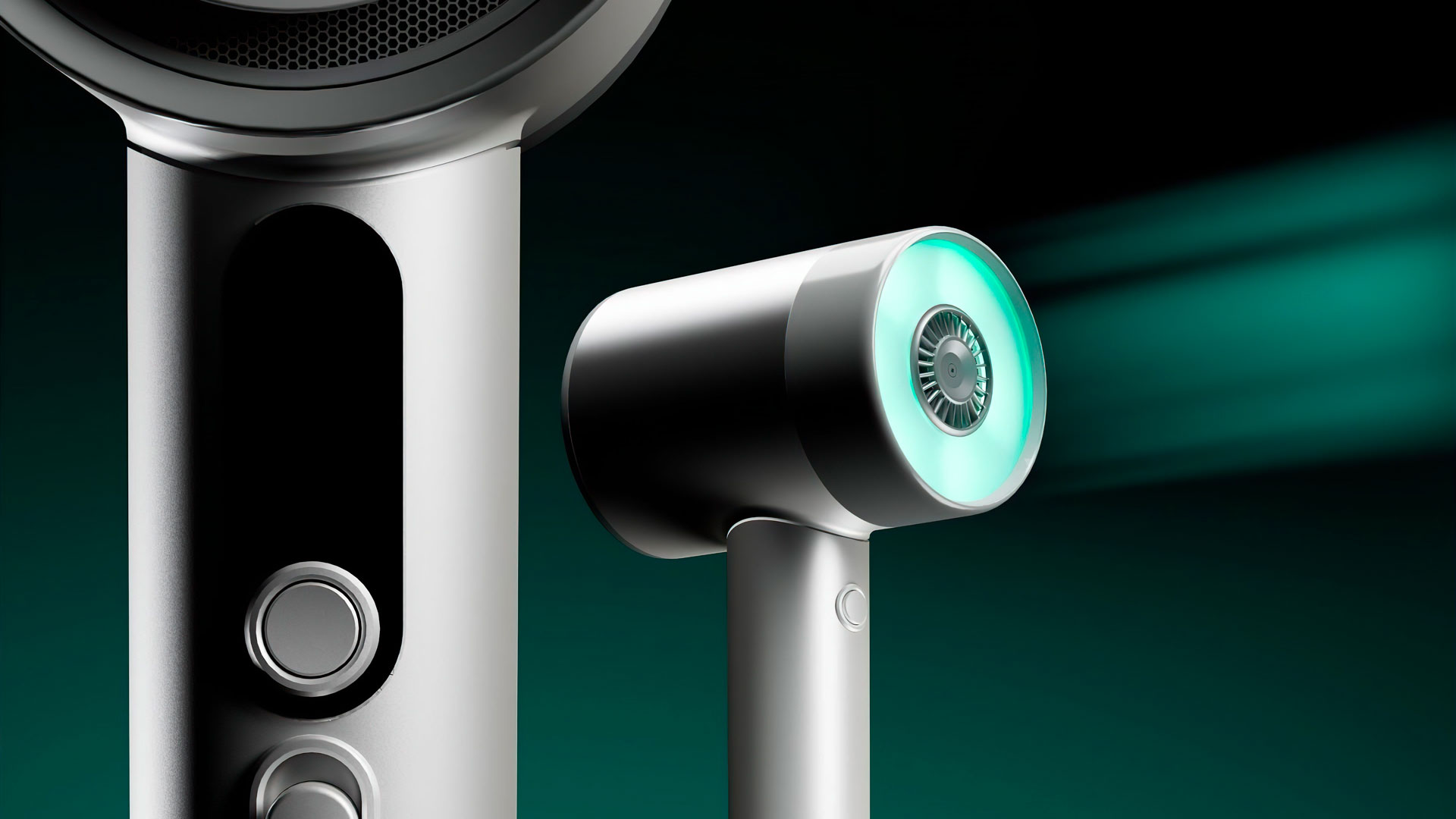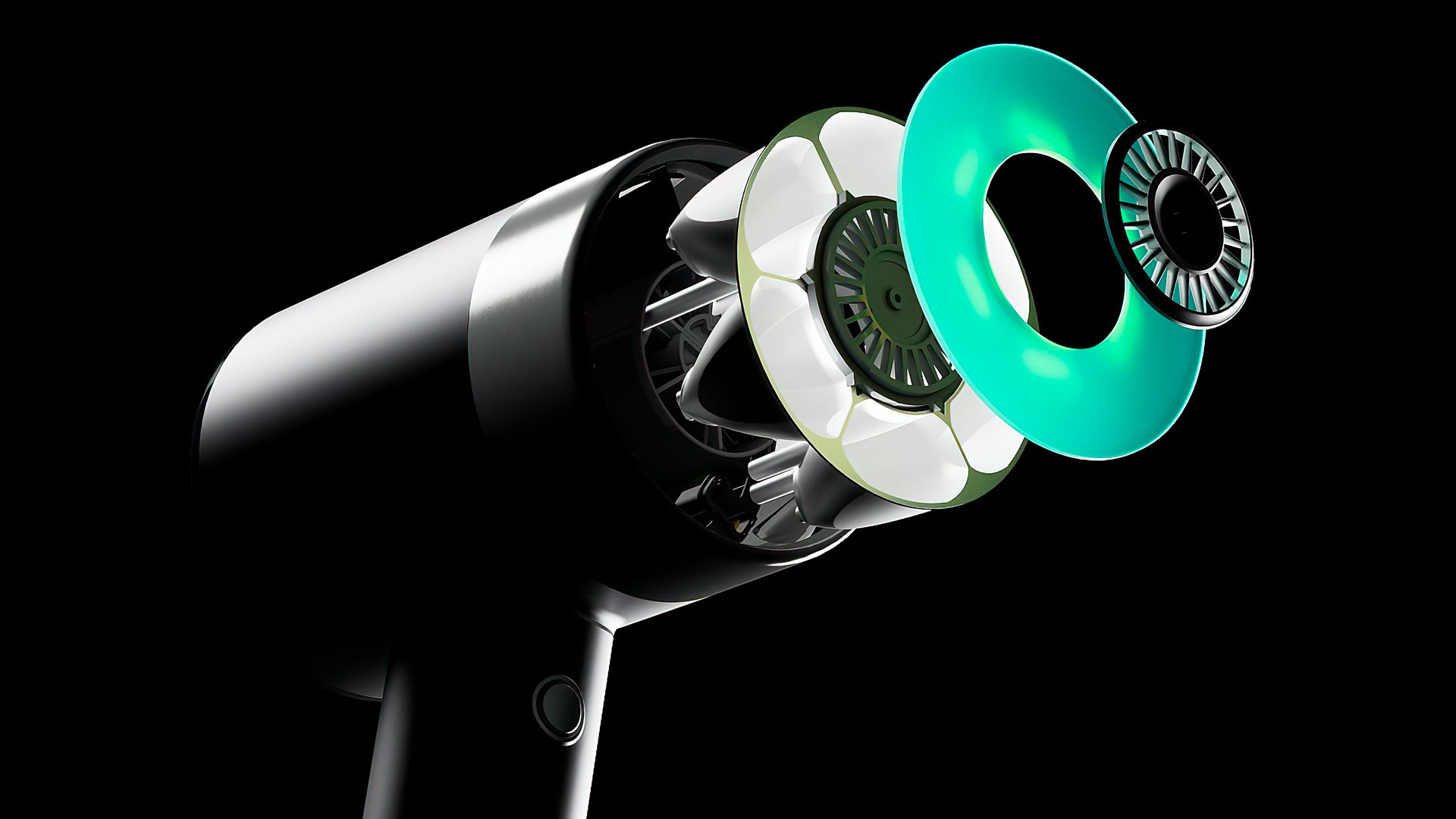Loreal is set to blow you away with its new infrared-light-based and app-connected hair dryer
The app manages your hair-drying customizations

I know what you're thinking: "Why is a bald guy writing about a new hair dryer?" In my defense, L'Oreal's new AirLight Pro isn't just any hair styling device. This blower packs in enough technology and app-connected smarts to interest even the most hairless of tech reporters, including me.
Unveiled at CES 2024 in Las Vegas, the AirLight Pro might, with that long stem and tubular head, look a little familiar, but it's not a knockoff of Dyson's popular Supersonic. It also might bear more than a passing resemblance to Zuvi's two-year-old and well-regarded Halo hair dryer. That, it turns out makes more sense – L'Oreal worked with Zuvi to advance the infrared hair-drying technology found in its Halo hair dryer and create something new. For L'Oreal', though, building AirLight Pro was not about the technology; at least not at first.
Guive Balooch, Global Vice President of L'Oreal's Technology Incubator, told me ahead of the launch that L'Oreal starts with the consumer need, and backfills with the technology. The company has been inching its way into the beauty tech space for over a decade, though Balooch recalled that when it first arrived at CES 13 years ago there were no beauty companies, and 10 years ago there were only a handful. In recent years, L'Oreal has unveiled a UV Sensor, a shade measurement tool, and augmented reality apps that guide consumers toward the right makeup choices for their faces.
This year L'Oreal is stepping to the forefront of a growing parade of CES beauty entrants with its first event keynote, during which it's unveiling the AirLight Pro.

The AirLight Pro still uses air and heating elements, but at a far lower temperature than traditional dryers, and it combines that warm wind with infrared light that, in combination, Balooch told me works a little like the sun and wind drying rain off the sidewalk. He added that it's more efficient, and gentler way of dying than traditional hair dryers, and eliminates the need to hold the dryer too close to your head (when I did have hair I recall that I only believed it was dry when I could smell the heat of my blow dryer cooking it). While a typical hair dryer might use more energy than your microwave, Blooch claims the AirLight Pro is 30% more efficient than a traditional hair dryer.
The Zuvi Halo made similar claims about efficiency and how this combo of warm wind and infrared light treats your hair, so how is AirLight Pro different?
Some of the changes are subtle, or hard to spot, like reorganizing the airflow to speed drying and make the process even easier on hair. However, two tech advancements caught my eye. One is that this is the first hair dryer in my recollection that can recognize attachments and then make adjustments to settings based on which attachment is fitted (the AirLight Pro does also have buttons to manually control heat and airspeed). Plus, this is an app-connected (iOS and Android) hair dryer that lets you create and save custom settings. Eventually, you may be able to share those customizations with other AirLight Pro users.
Get daily insight, inspiration and deals in your inbox
Sign up for breaking news, reviews, opinion, top tech deals, and more.
People should not suffer the consequences of being eco-friendly. We wanted to build the best hair dryer and then make it eco-friendly.
Guive Balooch
In the end, L'Oreal collected 15 patents on the device – and an early award from CES 2024.
One thing that was important to L'Oreal as it developed the AirLight Pro was that it wouldn't be just an efficient beauty appliance, but also an excellent hair dryer.
“People should not suffer the consequences of being eco-friendly. We wanted to build the best hair dryer, and then make it eco-friendly," Balooch told me.
The L'Oreal AirLight Po will be made available to hair salons from March, and will go on general sale in Europe this June, and in the US before the end of 2024. In all cases, L'Oreal expects to price the dryer at roughly $400 (about £315). There's no word yet on what attachments will be available, or what these will cost.
As for how it works… well I certainly couldn't try it, but TechRadar hopes to have some more hirsute correspondents caressing their locks with it before the end of CES 2024.
We’re covering all of the latest CES news from the show as it happens. We'll be covering everything from 8K TVs and foldable displays to new phones, laptops, smart home gadgets, and the latest in AI, so stick with us for the big stories.
And don’t forget to follow us on TikTok for the latest from the CES show floor!

A 38-year industry veteran and award-winning journalist, Lance has covered technology since PCs were the size of suitcases and “on line” meant “waiting.” He’s a former Lifewire Editor-in-Chief, Mashable Editor-in-Chief, and, before that, Editor in Chief of PCMag.com and Senior Vice President of Content for Ziff Davis, Inc. He also wrote a popular, weekly tech column for Medium called The Upgrade.
Lance Ulanoff makes frequent appearances on national, international, and local news programs including Live with Kelly and Mark, the Today Show, Good Morning America, CNBC, CNN, and the BBC.